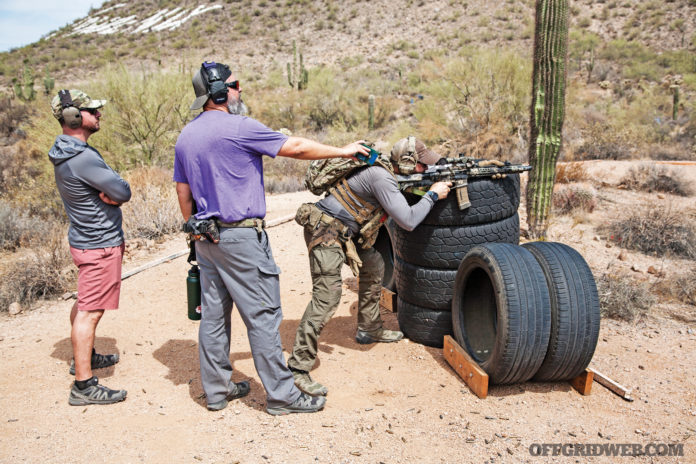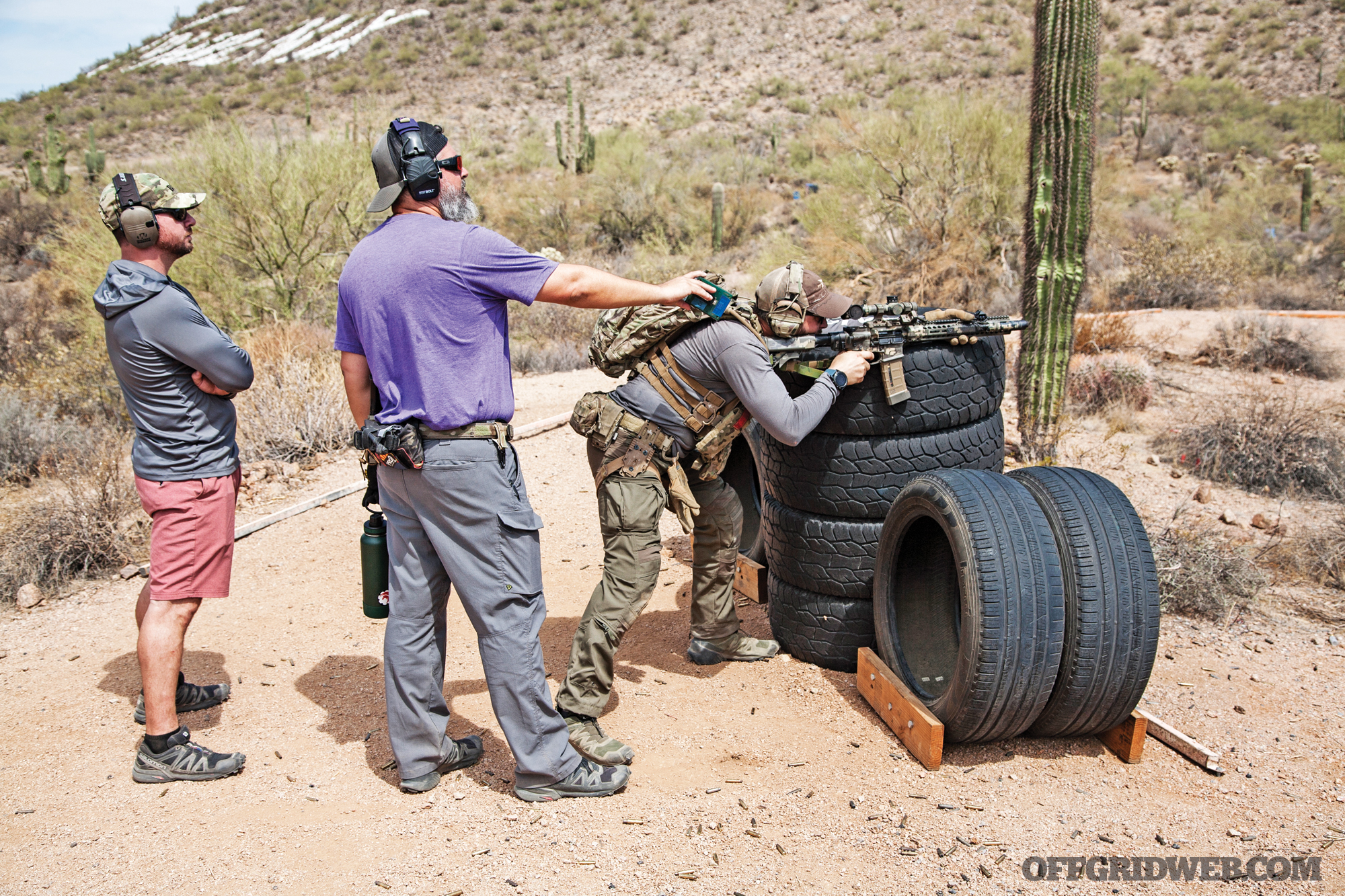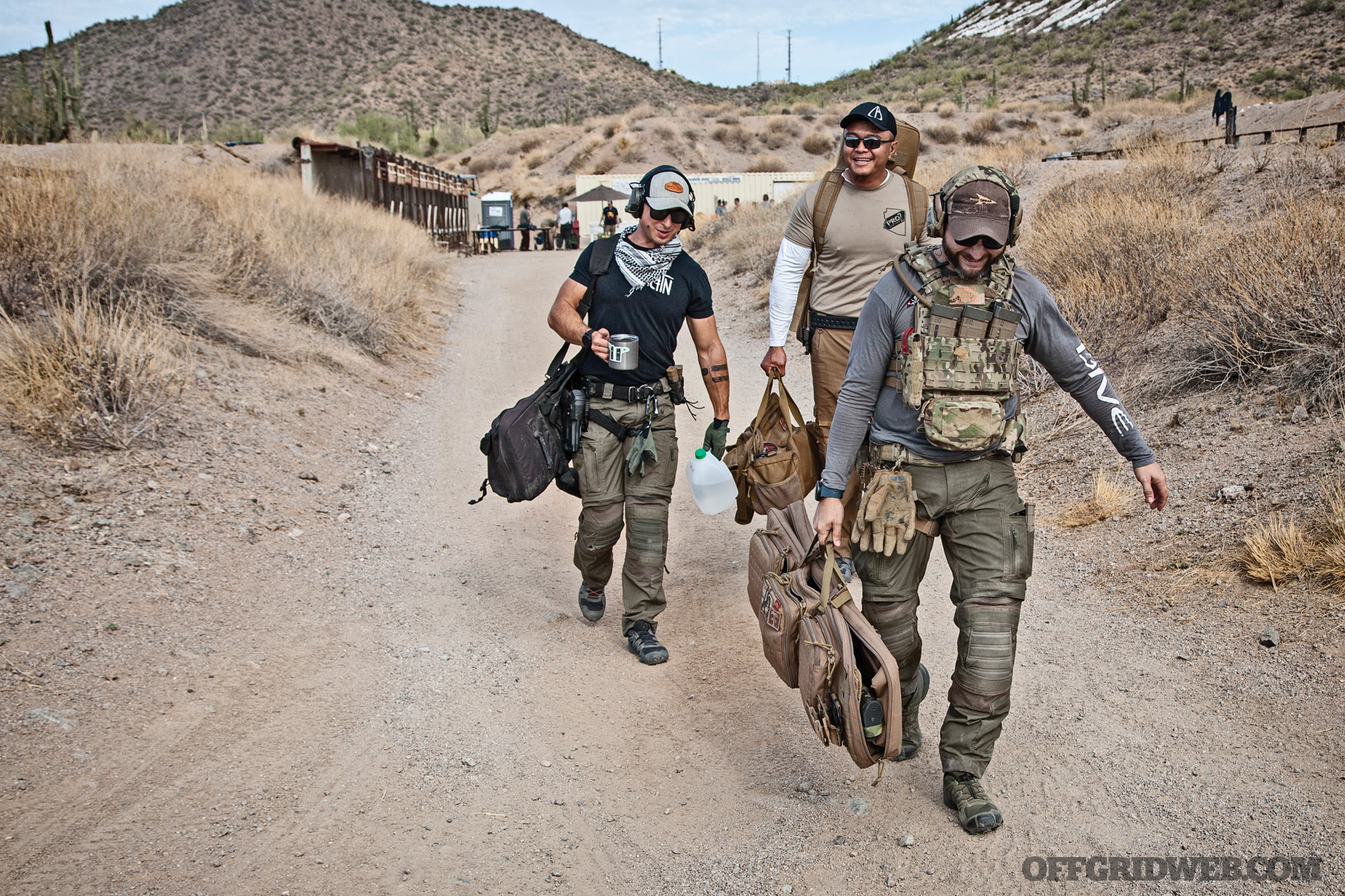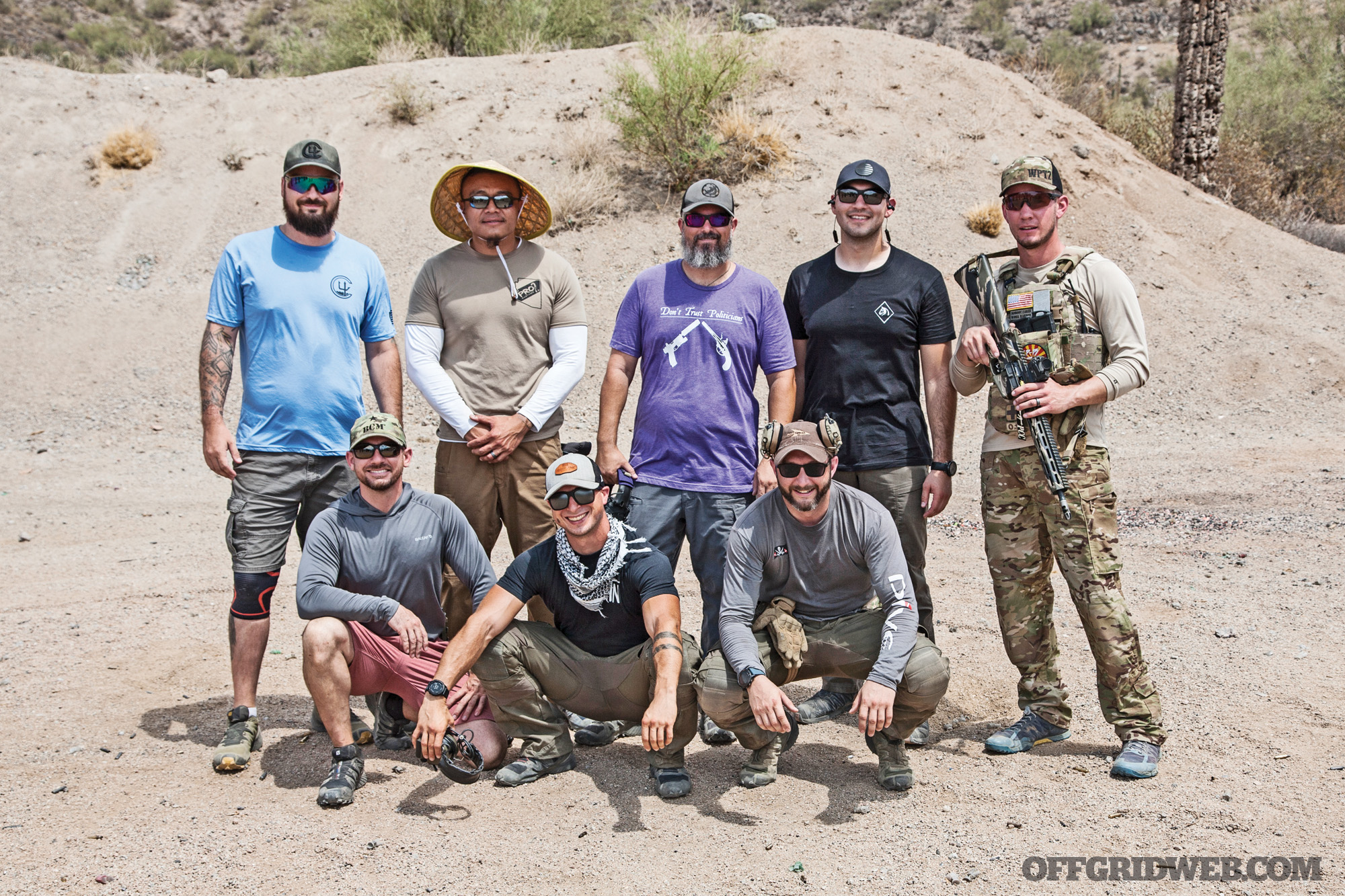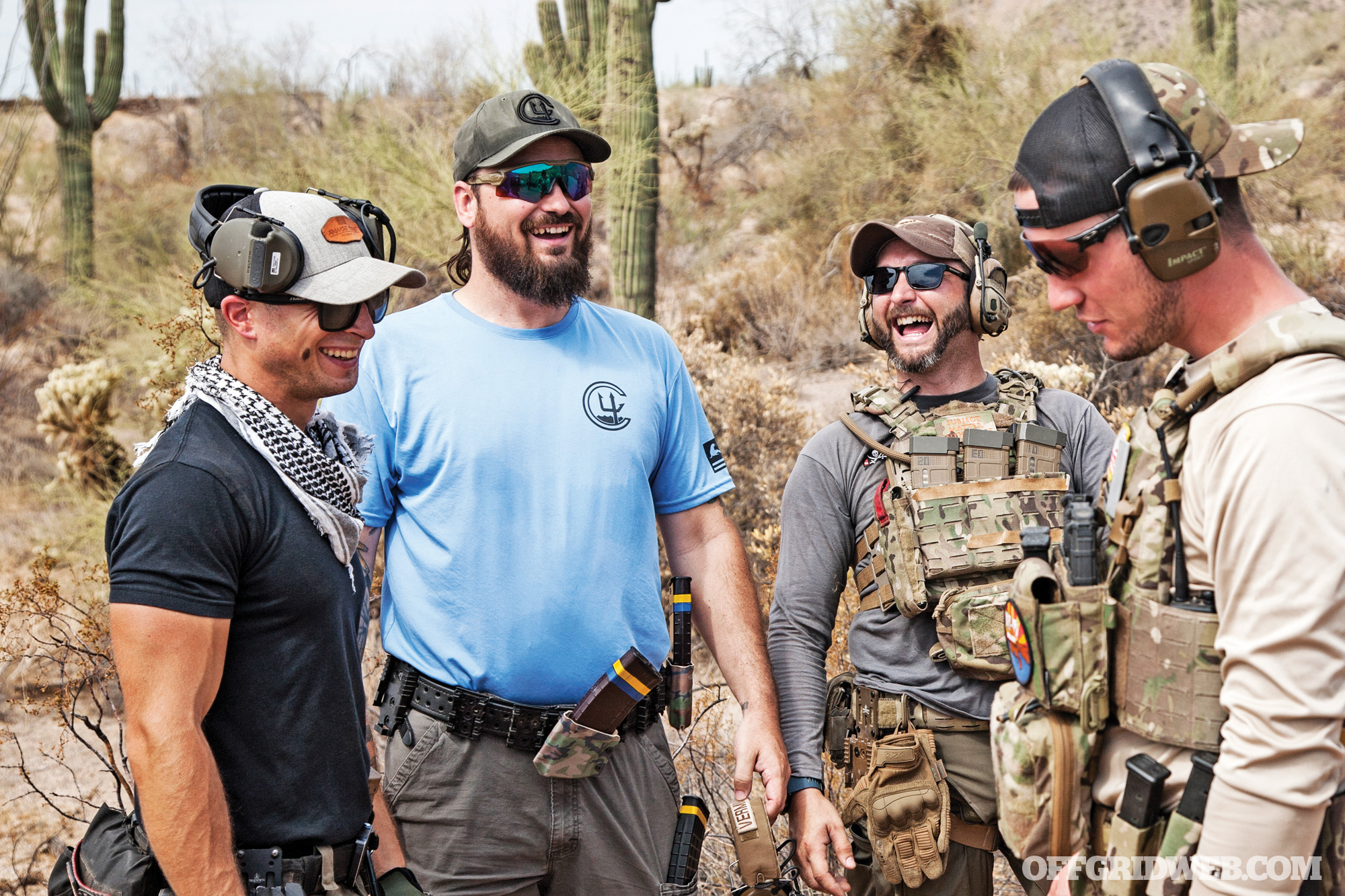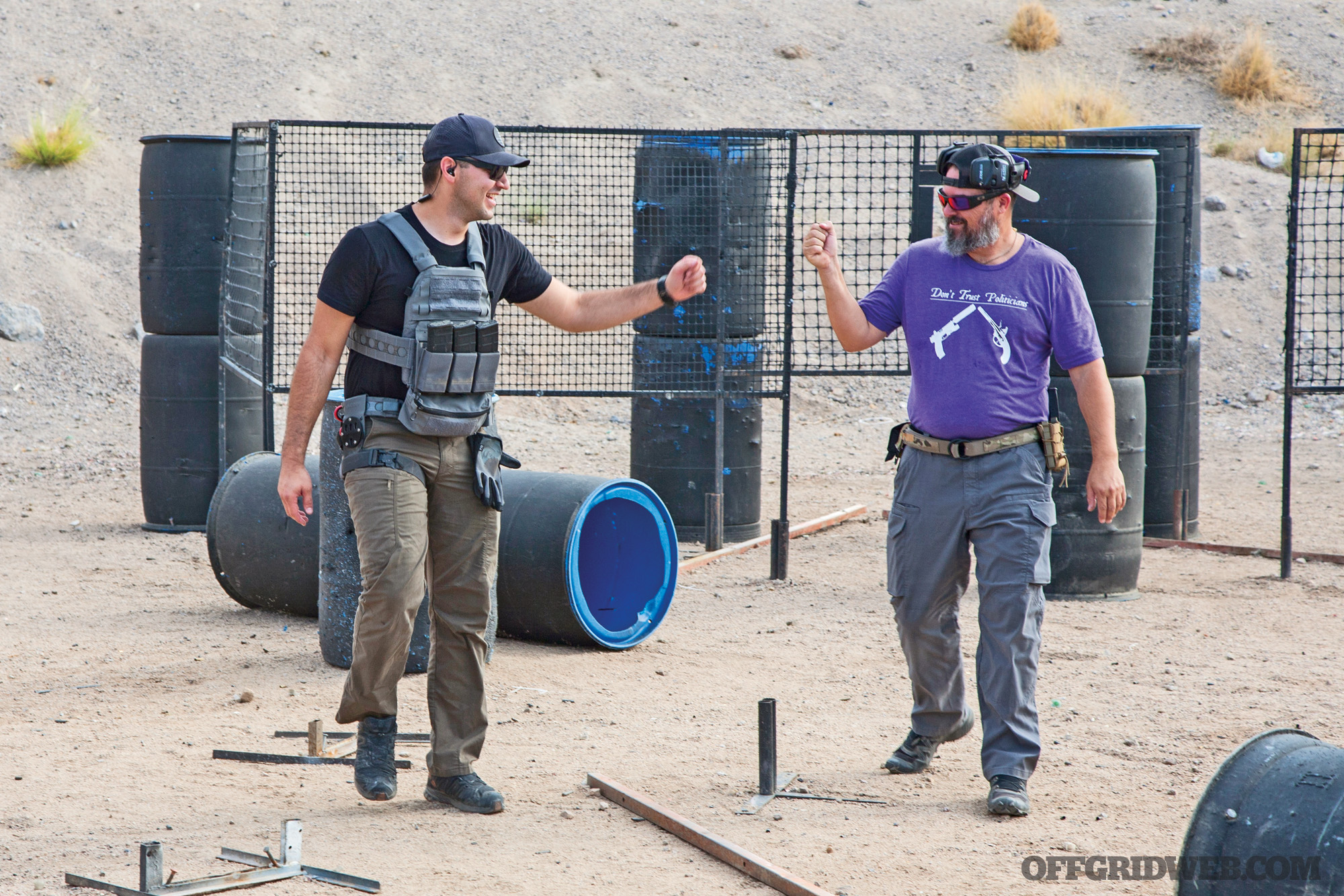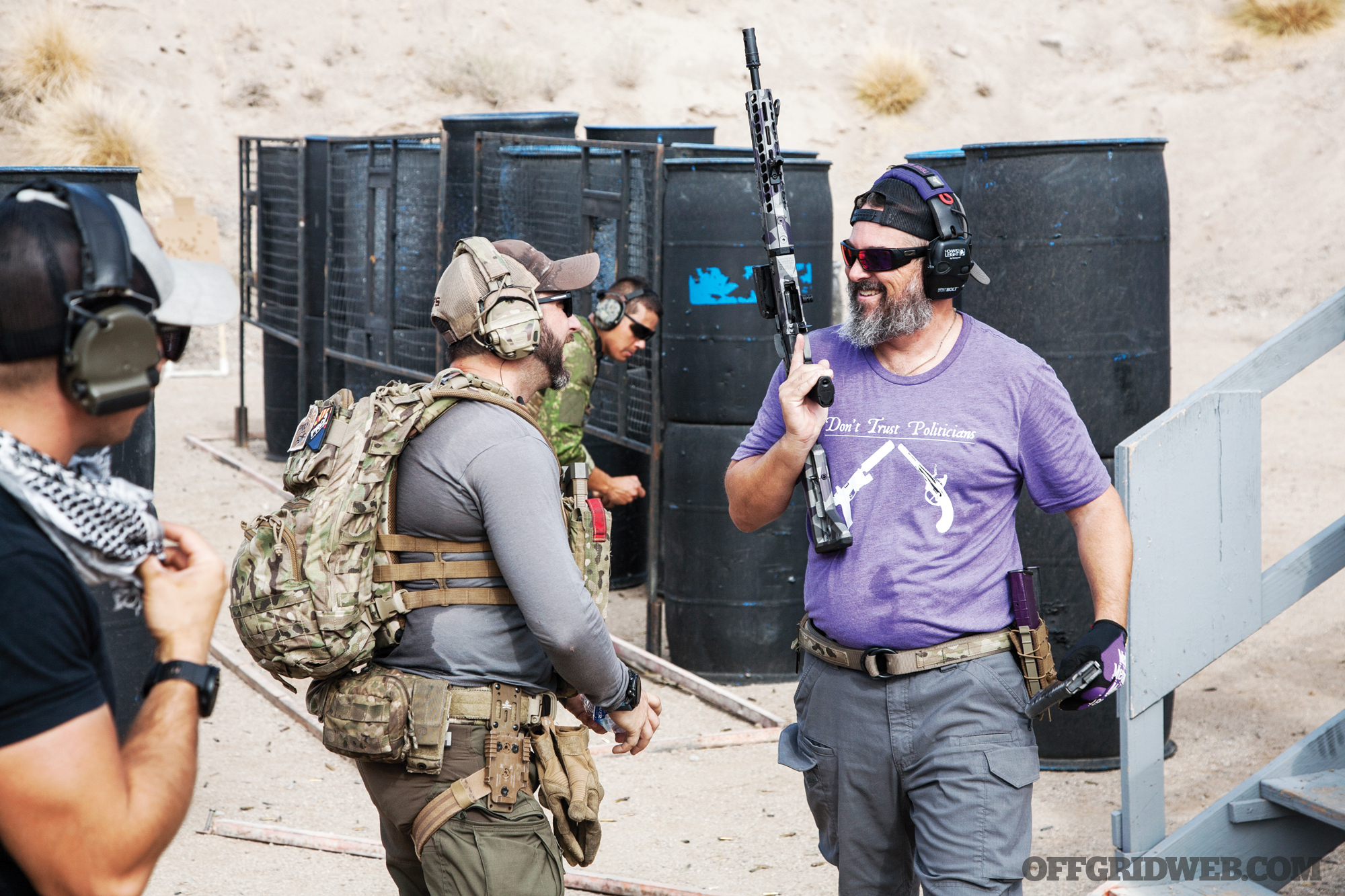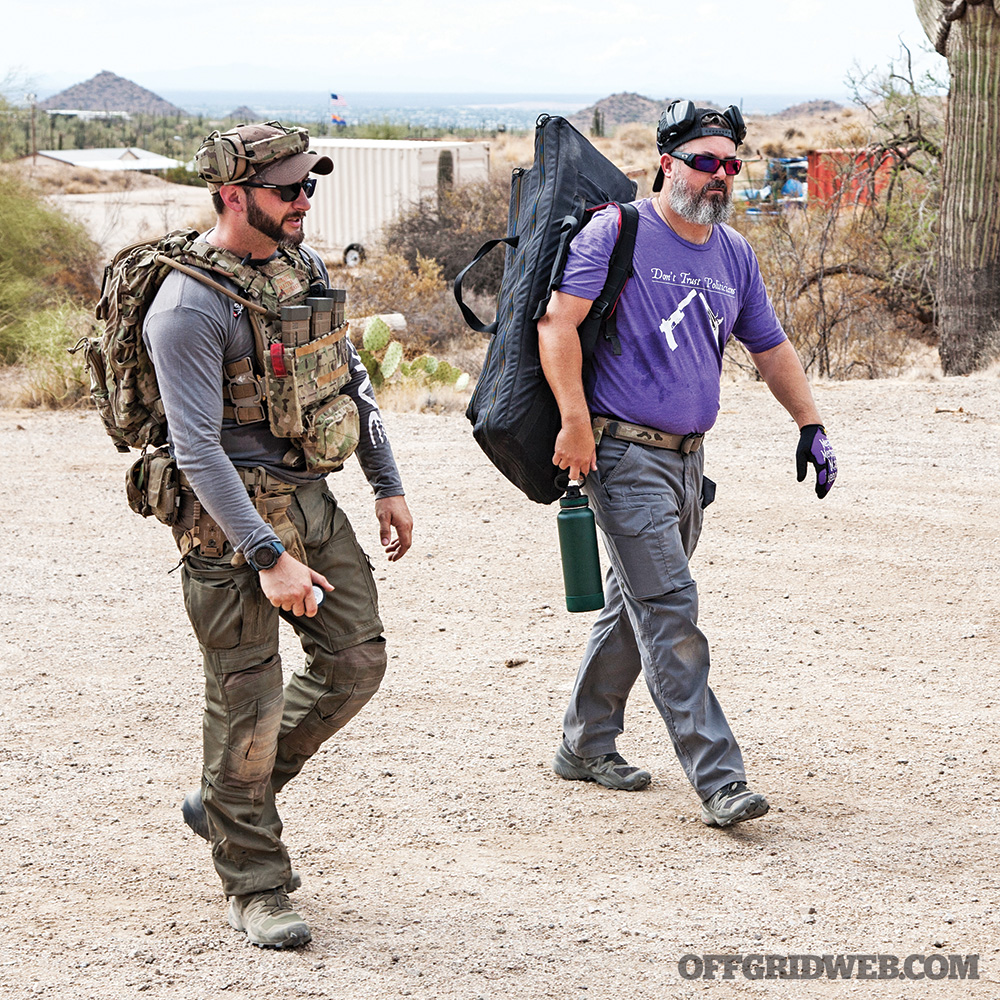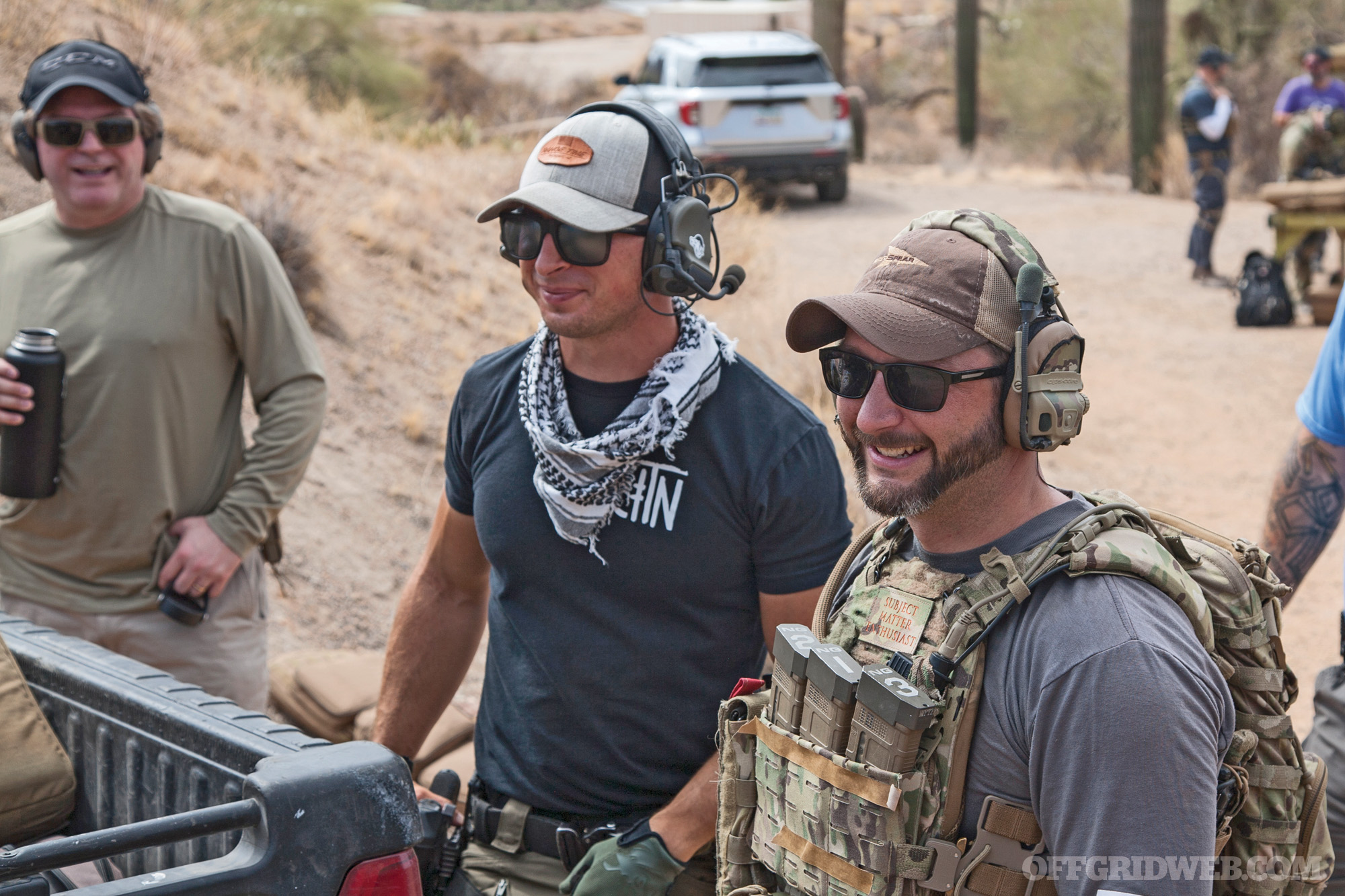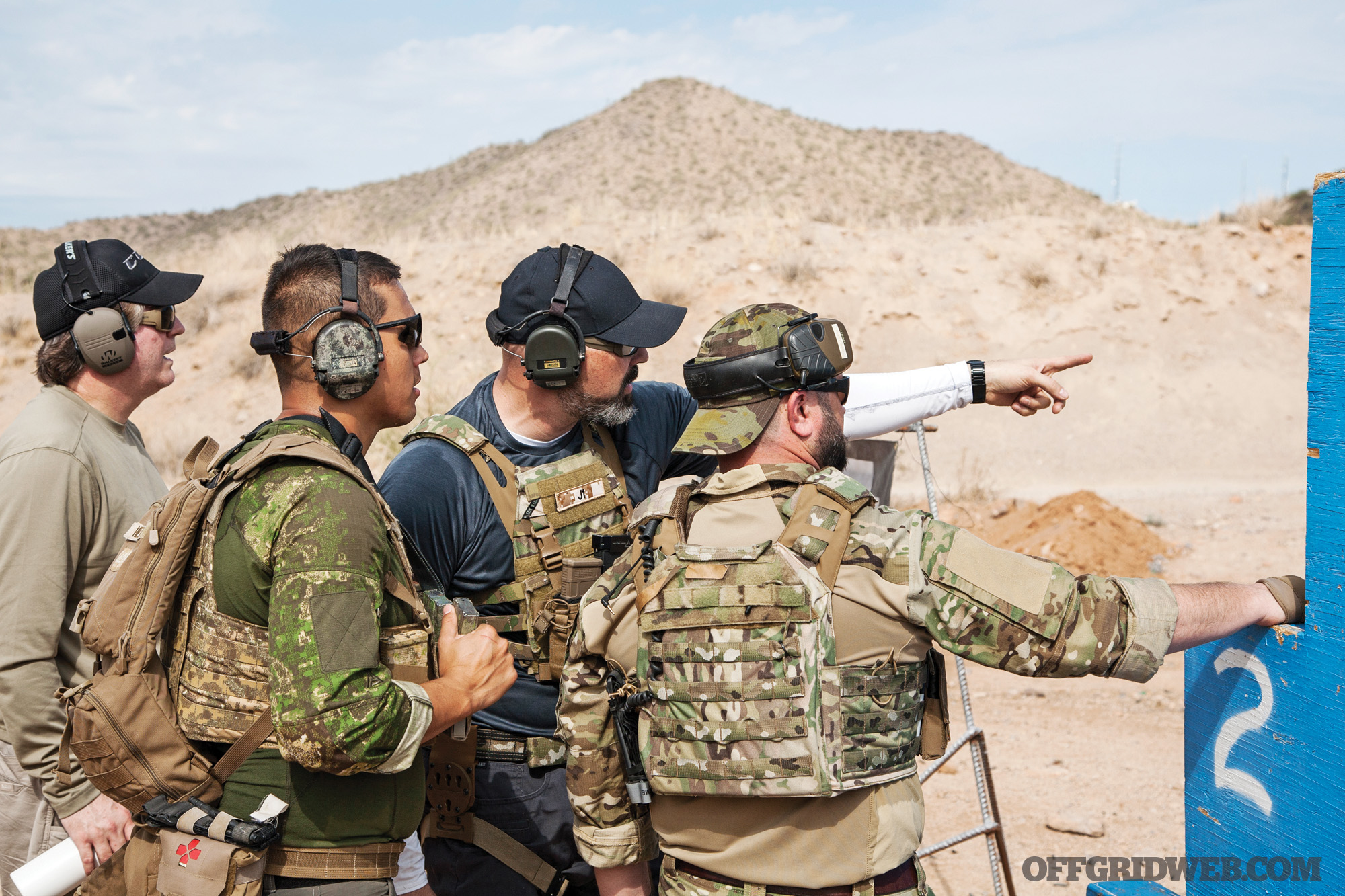Editor’s Note: In light of recent events in Ukraine, this article — which was written months ago — feels even more relevant. Remember that events outside your control may someday force you to rely heavily on your friends, neighbors, and local community. In extreme situations, you might even need to fight side-by-side with them. It’s critical to build strong relationships now and learn to work together.
There’s no question that the last two years have been bar-setters for the unexpected. We’ve seen everything from “murder hornets” that were supposed to wreak havoc on the ecology of the nation and cause immense pain, to thinly veiled power grabs by those who we’ve entrusted as leaders. Don’t forget the massive panic runs on toilet paper, of all things (you know who you are). With no surprise, we’ve been witness to suicide rates skyrocketing amongst the turmoil and stress, as well as a marked rise in drug abuse, both prescription and scheduled narcotics. Many cities around the country have also experienced record-breaking homicide rates.
Photos by Patrick McCarthy
Even with what seems like a minute-to-minute deluge of negative information, certain things have highlighted themselves positively as well. Chief among those has been the importance of positive human interaction with like-minded individuals who build you up and make you a better person. That’s where the concept of a “squad” comes into play. That term is used to describe a group of people with at least one shared goal and, more importantly, a shared mindset.
Above: “The Long Walk” — the author has learned through experience that shared hardship breeds the biggest smiles.
Examples of Group Effectiveness
Here are a few recent scenarios that serve as prime examples of the ways a united and multi-skilled group of people can be effective when the unexpected presents itself.
Texas Winter Storm: This once-in-a-lifetime event in 2021 caught the second largest landmass state in the union off guard, not only in terms of transportation but also civil logistics. There are a few snowplows in northern Texas, but they were woefully distant from the major metropolitan areas. Pipes froze, electricity went down, vehicles wouldn’t start or got stuck in place. More than 200 people lost their lives due to the storm, with the majority dying as a result of hypothermia. There was a level of preparedness that proved helpful to some, and more importantly, those who were prepared took care of their own. Part of that “squad” mentality wasn’t only being able to help yourself, but also being in a place to assist others. Selfless acts are rarely forgotten in a world of selfishness and fear.
Hong Kong Riots: In 2019, the world watched in dismay as residents of one of the last bastions of resistance to the not-so Sleeping Giant provided prime examples of how to band together when things seem impossible. For 12 days, students battled an authoritarian regime with less equipment than you can buy at a Home Depot and held out valiantly. A huge part of the reason they were able to resist was their ability to work together, rather than being singled out as individuals (a common crowd-control tactic).
Minneapolis Bookstores Burned: As a former resident of Minnesota, I had the distinct pleasure during my youth of visiting two intellectual icons of the city, Uncle Hugo’s and Uncle Edgar’s Bookstores. Amid the chaos that has intermittently plagued that city for nearly two years, both 100-plus-year-old structures — with Uncle Ed’s formerly being the oldest science-fiction bookstore in the country — were burned to the ground. Approximately 100,000 books went up in smoke, valued at roughly $400,000. In the ensuing aftermath, thousands of people have donated money, time, and energy to help rebuild the historic landmarks. Hundreds of authors also reached out to donate signed books to help rebuild the institutions of creativity and learning.
Building Your Bridges
Above: The crew of competition regulars includes a diverse range of personalities, skills, ages, and backgrounds.
Perhaps the key factor in finding, or assembling, an effective preparedness squad is unity of mindset. Even one or two people within the group who are self-focused instead of group-outcome-focused, can cause an otherwise coherent group of reasonable adults to become a gaggle of bickering children. One should never enter into an established group with his or her own needs in mind first. Acts of selflessness will go much further, both in terms of fostering goodwill and building group cohesiveness. A squad doesn’t need to be made entirely of gun owners or survivalists, but it does require the following hallmarks of a successful group:
Members’ Similarity: Finding a unifying factor, belief, or activity is infinitely more important than pretty much anything else. If you try to form a cohesive, self-sustaining group based on few to no commonalities, you’re likely to see it tear itself apart in short order. For starters, try finding an activity where the members are current avid participants. While beliefs can also be unifying to create something that’s longer-lasting and more likely to retain members, a social activity such as a sport or hobby is often a great avenue. The added benefit here is that group activities lend themselves to providing a unique sense of personal identity as well.
Above: Never take yourself too seriously. It’s a key lesson, both in life and in competition.
Group Size: Sebastian Junger’s Tribe: On Homecoming and Belonging is a great resource to understand this concept. The book — which is absolutely worth your time — explains that, for centuries, human beings have existed successfully in groups of 20 or less, where each member contributed to the survival of the tribe. If any one person didn’t pull their weight, the whole group would suffer. It was not until the Industrial Age where that dynamic changed. In today’s world, going full tribal is difficult, but we can have a close approximation through the concept of a squad. The challenge is in building a relatively small initial group and adding people as it becomes viable.
Above: Signs of appreciation for hard work and mutual respect go a long way.
Entry Difficulty: In the competition shooting world, civilians, military, and law enforcement can all glean a vast array of knowledge, but there are a few simple concepts that provide healthy barriers to entry. On the simplest level, do you put in the hard work when it’s not sexy to do so? Do you pick up brass in inclement weather? Do you tape targets up after each shooter? Do you run the clock or board without hesitation? Do you show up to events on time, every time? These are easy metrics by which to decide if someone is a good fit or not. More importantly, though, there are basic fundamentals required by the activity itself. Muzzle awareness, ability to follow directions, and cognitive processing under duress are wonderful preparedness skills to possess, especially in light of the recent turmoil nationally and internationally.
Group Success
As Michael Dell once said, “Try to never be the smartest person in the room. And if you are, I suggest you invite smarter people … or find a different room.” By the way, that’s Michael Dell as in Dell computers. He may know a thing or two about keeping intelligent folks at his side. His quote applies not only to intelligence, but also capability. By surrounding yourself with those who are equal with or superior to your own skill level, it fosters constant improvement and growth (with the requisite smack talk when you don’t meet your potential). People shy away from competition because, yes, it’s hard, and it should be. However, overcoming difficult challenges will maximize your personal growth.
One of the most relevant and tenable factors for a squad is the different skill sets (both personal and professional) that the group can bring to bear. Whether these are blue-collar trade skills, white-collar professional background, survival and backpacking experience, firearms knowledge and tactics, or fitness — all of these contribute to the wellbeing of the group and further drive personal improvement. Plus, should anything ever really go sideways like too many dream of, having someone around who can make coyote taste good or navigate using the stars alone could come in quite handy. Note: As part of the squad, you’d be required to present similar skills to the rest. The last thing you want to be is the person not contributing in a meaningful manner. That’s an easy way to find an unceremonious boot, and now you’re stuck on your own. By the way, another word to describe a “lone wolf” is “dinner.”
Above: A key to personal and group growth is feedback from your peers. Befriend those who push you to improve.
External Competition/Threats
One of the biggest challenges of holistic preparedness is finding ways to test skills. More importantly, being able to compare your skills to those of others is an important metric of effectiveness. By seeking out exterior challenge/competition, you’ll have a method of improvement that has far-reaching positive implications, both for the individual and the group as well. An example from the competition shooting world is stage execution. The first person to run a stage is more likely to make mistakes, and each subsequent shooter becomes less likely to make the same ones, having already witnessed what transpired.
Human beings aren’t made to be alone, despite what you might read or see in movies and/or TV. In fact, there’s an immense amount of data supporting the fact we thrive in a group environment. Look no further than the work of Peter Scharff Smith on The Effects of Solitary Confinement on Prison Inmates: A Brief History and Review of the Literature. There is a limit to the number of people who can form a single effective group, though, and urban living far exceeds that limit. With that in mind, the best thing you can do for yourself, your family, and your friends is to create a “squad” of your own. Be a contributing member of that group every day, short of choosing to live far outside an urban setting. Just like great friendships, working together as a squad takes effort and commitment to be an integral member, but the rewards far outweigh the costs in the long run.
The post Safety in Numbers: Preparedness is a Group Activity appeared first on RECOIL OFFGRID.


